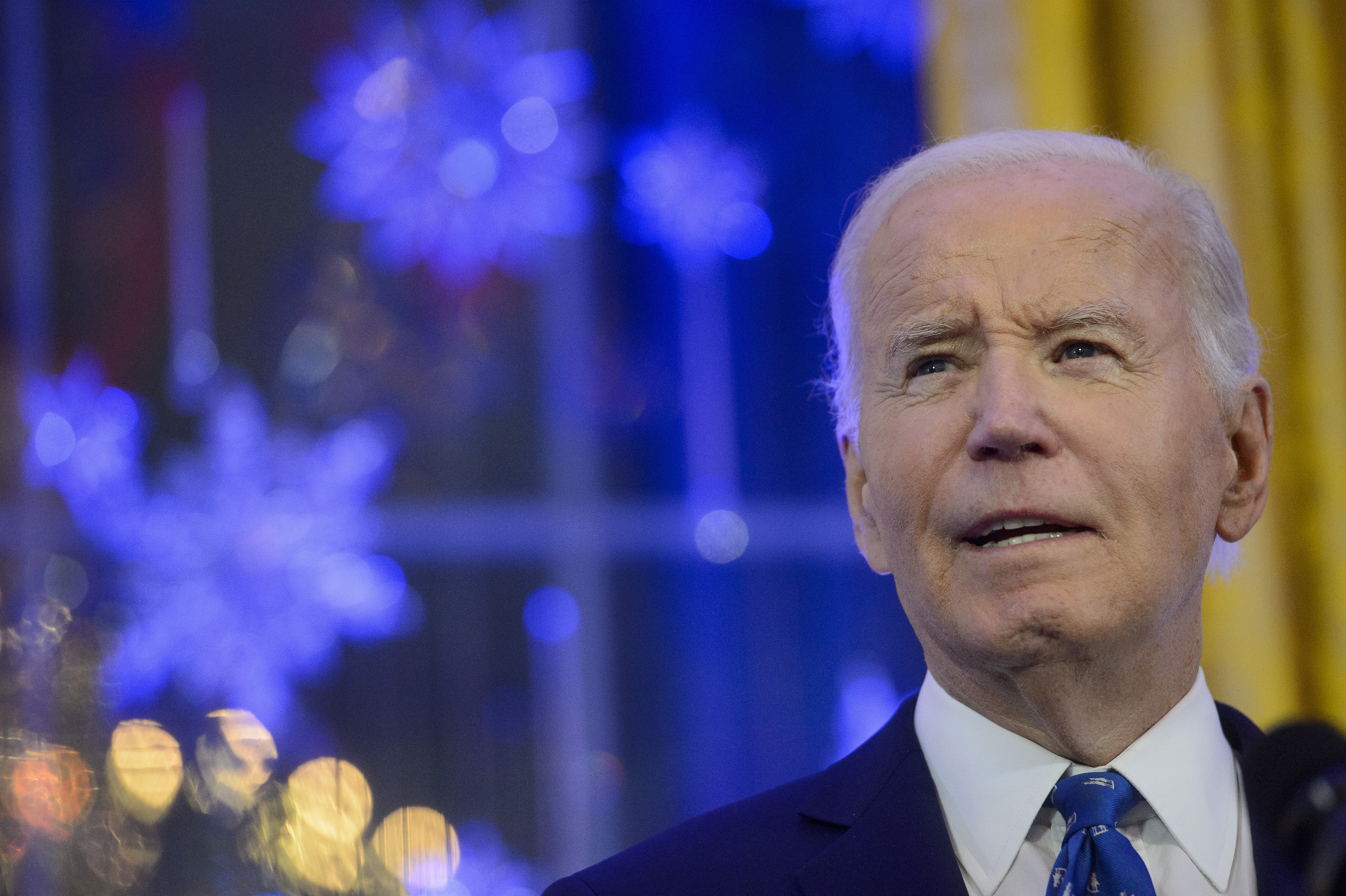
Every year, Jessie Cai would shadow her mom on “take your kid to work day.” At the Maryland Social Security office, where her mom was a systems analyst, she was struck by the lack of Asian American faces in the room. “I walked around and got the distinct impression that not many people in public service looked like me or my mom,” said Cai, a 17-year-old rising senior.
That experience set her on a mission to understand Asian American civic engagement. In 2023, she joined New Voters, an organization that helps high schoolers host voter registration drives. A consequential Maryland primary election was on the horizon, and she wanted to make sure young people — including the Asian Americans in her community — made their voices heard. “In Maryland, you can pre-register to vote at age 16, so I knew we could cast a wider net to register younger students,” she said.

Courtesy Collin Wang
New Voters paired Cai with a mentor, who gave her step-by-step guidance for hosting a registration drive. Cai set up meetings with school administrators, convinced her statistics teacher to sponsor her club and partnered with the National Social Studies Honor Society to set up the weeklong initiative in April. She and her friends tabled outside of the cafeteria, where they handed out donuts to students who dropped by to learn more about voting.
Get top local stories in DFW delivered to you every morning. >Sign up for NBC DFW's News Headlines newsletter.
In the end, she managed to register 186 students. “We drove home the point that voting is the best way to hold people in power accountable,” she said. “We reminded them that we take our right to vote for granted. It’s a privilege that other teens around the world sometimes don’t get.”
This is how New Voters, a nonpartisan nonprofit, operates — by connecting high school students passionate about civic engagement to the resources they need to galvanize their peers. Founder Jahnavi Rao, 24, registered 85% of eligible voters at her high school as a senior in 2017. Soon after, high schoolers across the country were reaching out to her to ask how they can do the same.
Since 2018, the organization has registered over 80,000 high schoolers to vote across 400 high schools in 39 states. Each election, the organization builds on itself — New Voters has worked with over 2,000 high school student drive leaders and volunteers, who then go on to mentor new recruits.
U.S. & World
“We’re a youth-led, issues-first organization,” Rao said. “When we talk to students, we always lead with, ‘What do you care about?’ That’s the best practice for canvassing across the board, because young people care so much. It’s just a matter of tying that care to voting.”
Amplifying high school voices in politics
In the 2022 midterm elections, 12% of ballots were cast by young adults ages 18-29, even though they make up approximately 18% of the electorate.
However, these numbers have been trending upward in recent years. According to the Center for Information and Research on Civic Learning and Engagement at Tufts University, Gen Z voters turned out at higher rates than previous generations during their first midterm elections in 2022. Fifty-one percent of voters ages 18-24 are expected to vote this November.
One way to engage the 8 million youth who are newly eligible to vote this year is to appeal to the issues they are more likely to care about: the climate crisis, gun violence and racism, said Rao.

Another key factor in youth voter turnout is ease of access to the ballot box. States that lowered barriers to voting by allowing same-day voter registration and student IDs as documentation had much higher rates of voting in 2022.
Michael Hanmer, a professor of government and politics and the director of the Center for Democracy and Civic Engagement at the University of Maryland, noted that about 39% of high school graduates don’t go on to attend college. He emphasized the benefits of registering students during high school as soon as they turn of age. “After high school, disruptions in life can make it more difficult to register,” he said. “If you build habits of civic engagement earlier while students are in their home communities, voting is much more likely to stick.”
Hanmer believes that voting is culture-based, and that school administrations, teachers and students can all take part in building a voting-positive culture. “Schools as an institution can play a large role in encouraging civic engagement by working with organizations like New Voters that train students to build cultural roots and transfer their skills to incoming students,” he said.
Cai’s mentor, Collin Wang, hosted five drives to register more than 300 students at his high school in Wexford, Pennsylvania, before becoming a New Voters mentor. He says one of the greatest challenges his mentees have faced is convincing school administrators to get on board with the drives. Some principals weren’t keen on supplying lists of eligible voters; others were hesitant about being accused of partisanship. In these instances, Wang and New Voters provided message templates that explained the nonpartisan nature of their work and the state laws that mandated high schools host voter registration drives. In the end, administrators came around.
While Wang offers guidance to his mentees, he also lets students tailor their own approaches to registering their peers. “We want to give the students their independence because each school is different,” Wang said. “The students know what strategies will work best at their schools.”
Building a coalition around high school civic engagement
Over the past year, the work of New Voters has expanded beyond school drives. In early 2022, the organization launched the New Voters Research Network, which matches high school students with university and nonprofit researchers and trains them to develop a study on civic engagement. “When students present their projects to professors, they’re blown away at the impact and quality of the research that high school students can produce,” said Sydney Fahn, the director of the initiative. Currently, the network is running around a dozen research projects.
For his project, Wang reached out to all 600 Pennsylvania public high school principals to analyze which messages received the most engagement. While his team is still waiting on the results, Wang is confident the research network will fill an important knowledge gap. “There’s really no reported information on the potential of high school civic engagement,” he said. “I hope all these findings could lead to changemaking policies in the future.”

New Voters
After establishing the research network, Rao shifted her attention to the November election. In February 2023, she organized a virtual listening tour of 40 organizations in the high school space — from other voter-focused initiatives like My School Votes to general youth nonprofits like YMCA and Scouting America — to ask them about whether they were involved in voter registration efforts. She found two common sentiments among the groups: one, there wasn’t enough data available on how to increase voter registration, and two, there wasn’t enough collaboration among high school-serving organizations. “I had an idea — what if we could bring together everybody who’s working with high schoolers to the table, whether they’re state-based, county-based, national or issue-based, to share best practices and build trust?” Rao said.
This led to the group’s latest project, the New Voters Collaborative, which brings 30 high school-serving organizations together for monthly meetings to discuss issues like how to encourage voting in high school civics classes and write op-eds for local papers. “We’re building out a map of where each organization works, where the gaps are and supplementing the schools that need resources,” she said. “The ultimate goal of the collaborative is to support voter registration at every high school in the country.”
With the general election approaching, New Voters is targeting 400 drives and 40,000 new registrations across the swing states of Pennsylvania and Arizona. Katie Walters, a high school government teacher in Pennsylvania and a New Voters faculty advisor, said that her students began strategizing as early as this spring, tabling during graduation rehearsals and planning homeroom class visits in the fall. “We have students go into every classroom and explain how to register,” Walters said. “A grassroots, student-to-student interaction is key.”
This story first appeared on NBCNews.com. More from NBC News:



